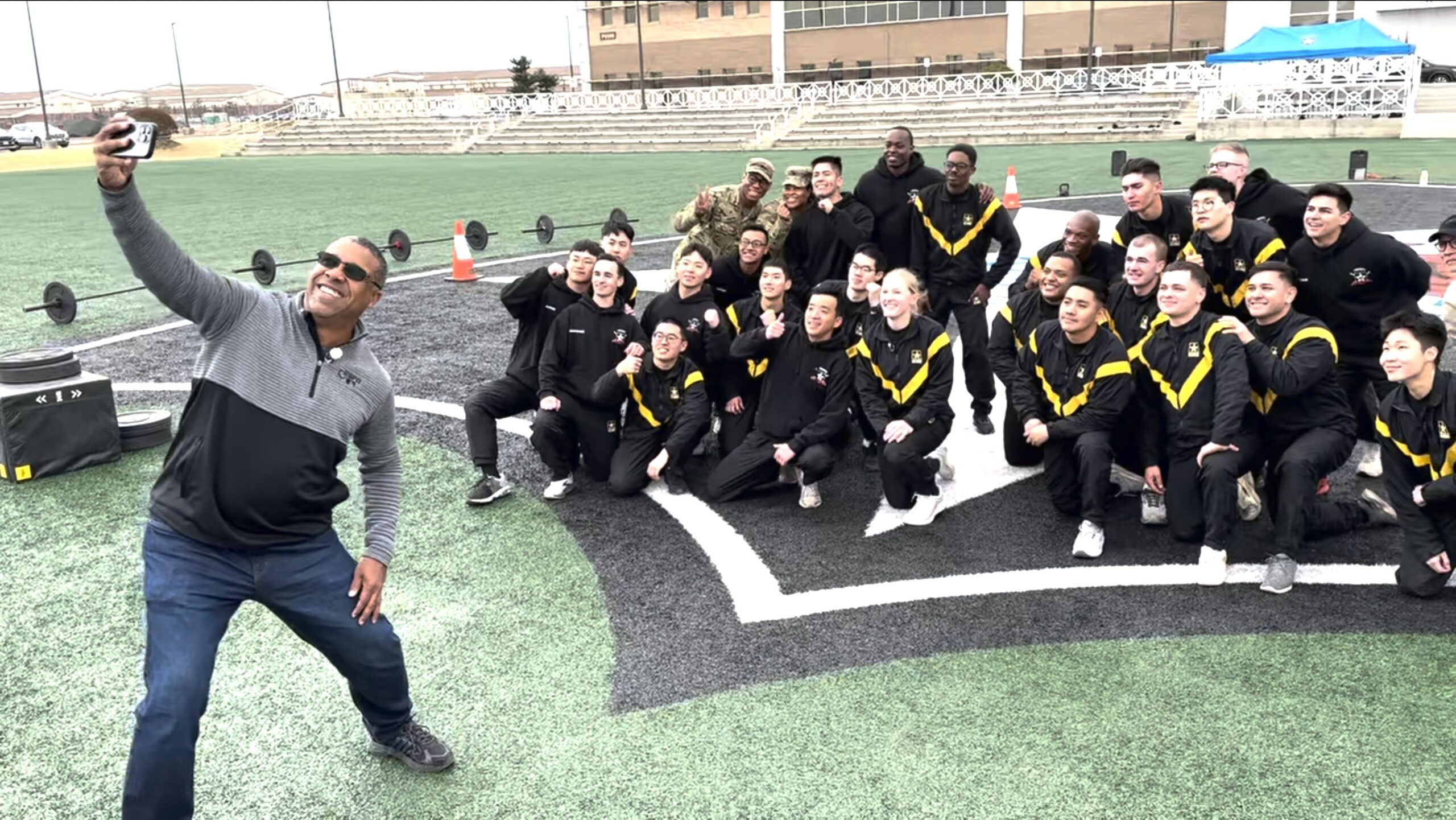MLB Seoul Series: ESPN Turns to COVID-Era Remote Production for Two-Game Slate in South Korea
Major League Baseball is handling transmission, overall coordination from Gocheok Sky Dome
Story Highlights
When the Los Angeles Dodgers signed renowned pitcher/designated hitter Shohei Ohtani and 25-year-old Japanese pitching phenom Yoshinobu Yamamoto, the seven-time World Series Champion became a prime candidate for the March 20-21 MLB Seoul Series against Korean Ha-Seong Kim and the San Diego Padres. ESPN, the main domestic broadcaster, is working with Major League Baseball to remotely produce the event via the same workflow it deployed for Korea Baseball Organization (KBO) League games during the COVID-19 pandemic.
“We did 150 KBO League games, starting during the pandemic and continuing even when MLB returned,” says Phil Orlins, VP, production, ESPN. “It has been really special for us to reconnect with that experience of producing the first Major League Baseball games played in Seoul.”
Back to 2020: KBO League Broadcasts Supply a Useful Blueprint
The sports-video–production industry has learned a lot of lessons over the past four years: becoming more adaptable to unforeseen circumstances, integrating more cloud-based workflows, creating more-efficient ways of producing live broadcasts, prioritizing employees’ well-being through the ability to work remotely. The COVID-19 pandemic hampered areas of the business — particularly, supply chain and product turnaround — but, once the necessary gear was acquired and sports gradually blipped back onto the calendar, broadcasters like ESPN found unique ways to distribute games to fans still stuck at home. In May 2020, the KBO League was back, and ESPN signed a media-rights deal to air 150 of its games for baseball-hungry viewers in the U.S.
“We had to figure out how to make [these games] reasonably entertaining and how to approach [them] in a different way,” says Orlins. “They ended up being a blend of sports talk and game coverage, which was a predecessor to what fans are seeing on alternative broadcasts today.”
Producer Andy Jacobson, one of the leads on the project, was responsible for keeping the engagement going for a game taking place thousands of miles away from viewers. With MLB superstars on the back burner, Jacobson and the rest of his team focused on the communal aspect of watching a game early in the morning.
“We attacked those shows similar to how we produce our MLB Spring Training games, where we didn’t expect our viewers to know the players,” he says. “The goal was to watch some baseball over a cup of coffee at whatever time of the morning and enjoy some sense of normalcy since we were all craving it.”
The result was a robust REMI infrastructure that offered talent and guests alike from their respective homes. Notably, play-by-play commentator Karl Ravech and analyst Eduardo Perez provided insights from their respective homes rather than onsite — a practice that became an industry-wide trend during MLB’s return that summer. As one of the first televised sports productions after a complete shutdown, the network’s effort paid off and laid the groundwork for this year’s two-game slate in Seoul, including early start times and remotely produced games via a world feed.
Production at Home: Bristol-Based Team Leverages MLB World Feed, Two Unilateral Cams
As with productions for the KBO League or the shortened 2020 MLB season, Major League Baseball is in charge of producing and distributing a standard world feed for rightsholders. As the national outlet for fans around the U.S., ESPN is enhancing this coverage with two unilateral cameras controlled by an onsite ESPN-specific operator. One of the cameras is an iso dedicated to Ohtani at all times during the game. In addition, the world feed comprises player mics and IFB communication for live in-game interviews, which have become a staple on ESPN’s Sunday Night Baseball package. Shared resources include 4DReplay — which was also used during the 2020 KBO League season — and UmpCam.
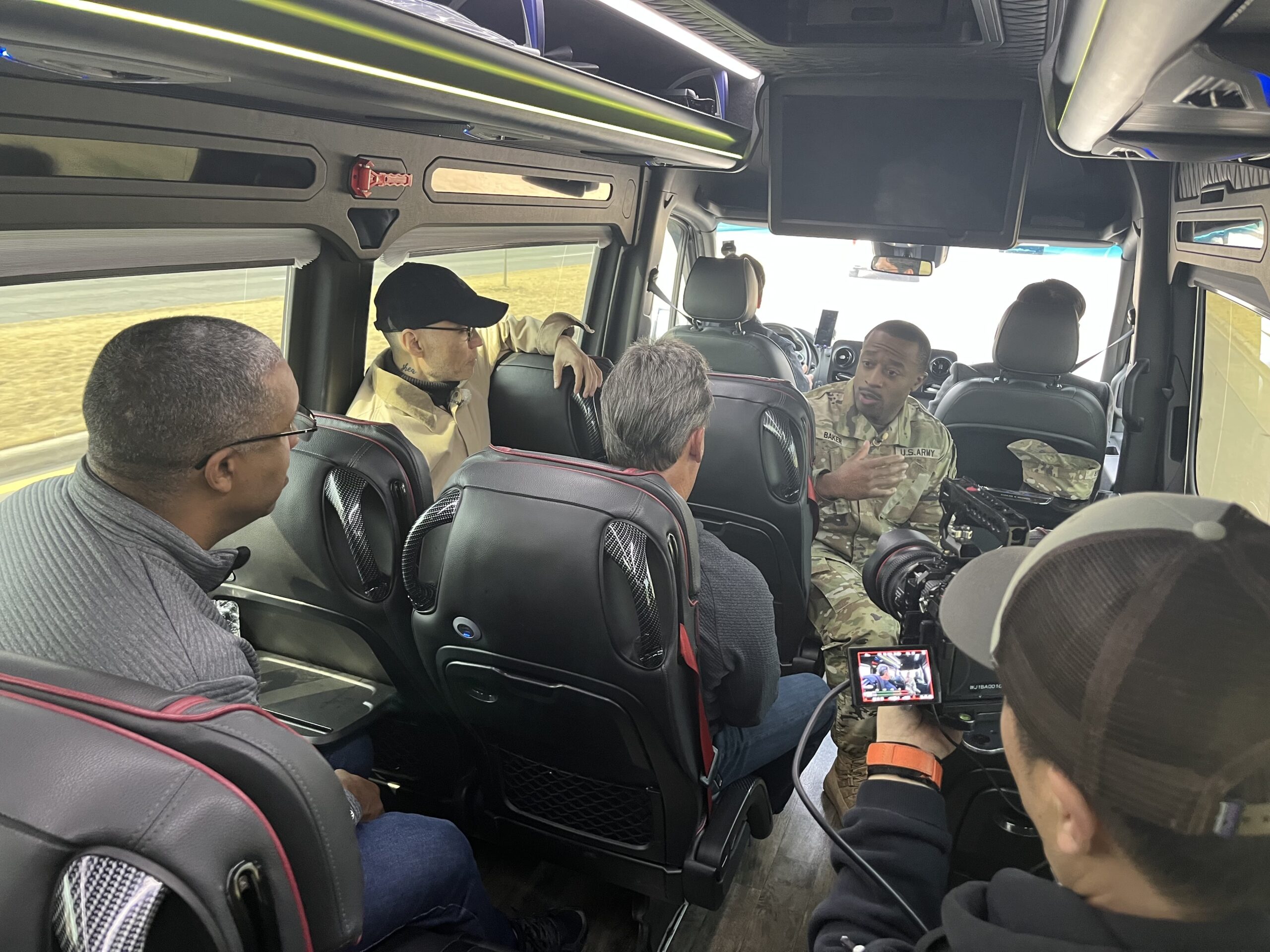
The Sunday Night Baseball crew is doing one-on-one interviews with Americans living in South Korea, including Staff Sergeant Baker stationed at USAG Humphreys.
For Dodgers and Padres fans, this week’s games are being shown on the respective local networks: Spectrum SportsNet LA and PADRES.TV, which is being operated by MLB Local Media. The networks also have access to the shared resources. On the production side in the U.S., ESPN’s PCR 71 in Bristol, CT, houses the team that puts the show together. Director Mike Griffin and Producer Joe McCoy are at the helm of this portion of the show.
In Seoul: ESPN Team, Bilingual Staffers Provide Onsite Support
In South Korea, a handful of ESPN staffers are working with local crew to capture the pulse of the game and the culture of the city, sending video feeds to the control room in Bristol. Jacobson is helping tell the story of the city to viewers in the U.S. Besides helping with live game coverage, he travels with talent to do a handful of interviews, including one with soldiers stationed at U.S. Army Garrison Humphreys. Located approximately 40 miles south of Seoul, it is the largest U.S. overseas military base and home to the Army’s most active airfield in the Pacific.
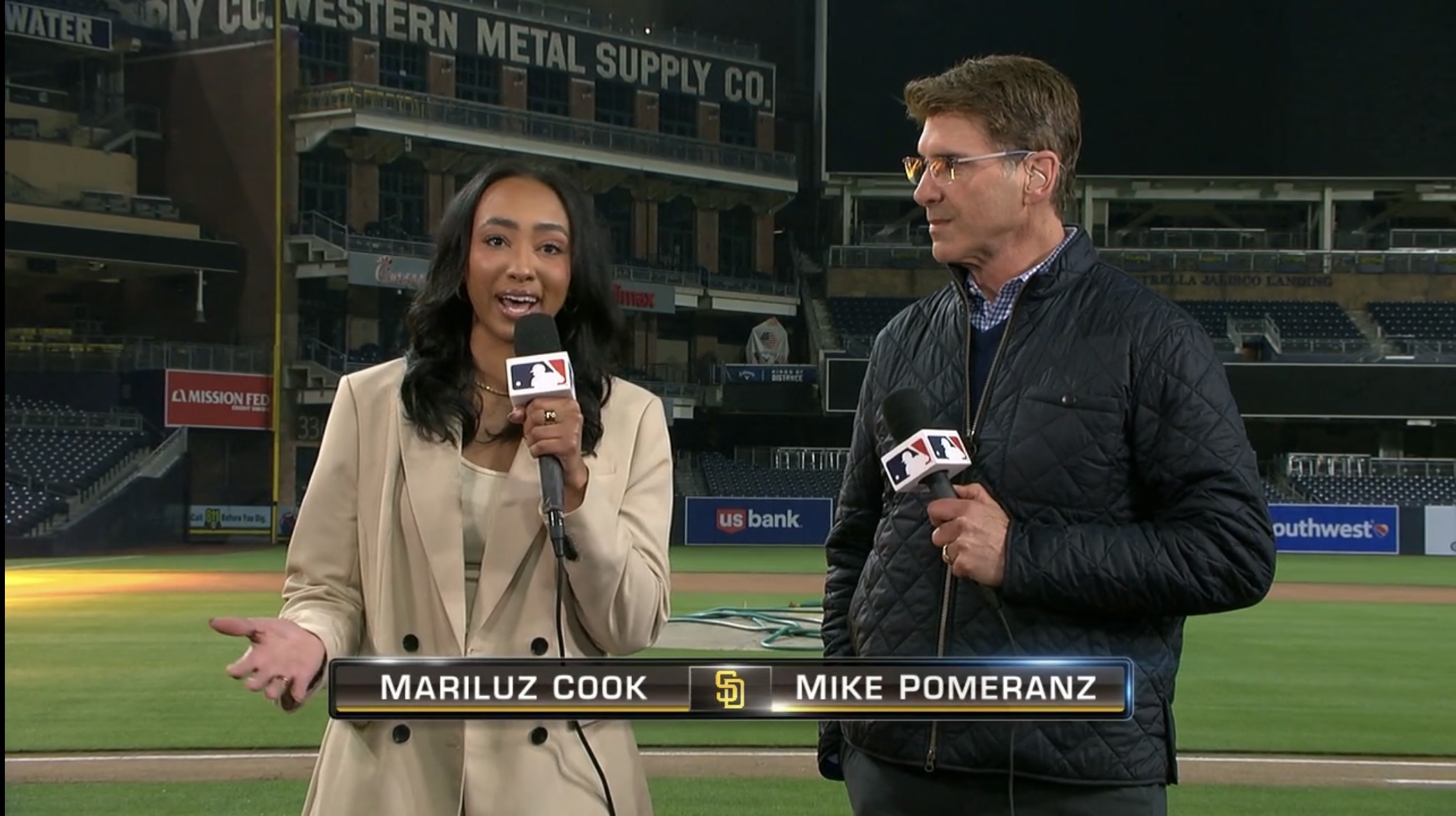
PADRES.TV’s Mariluz Cook and Mike Pomeranz led the pregame show from Petco Park in San Diego at 2:30 a.m. PT.
As for live game production, traveling Ravech and Perez to Seoul contrasts with the broadcaster’s operation four years ago. For example, in 2020, when the KBO League returned, Ravech needed only to walk to a dedicated workspace within his home; in 2024, the voice of SNB needed to jump on a 15-hour flight from Nashville’s Bridgestone Arena after calling a 73-56 Mississippi State victory over the University of Tennessee in the SEC Men’s Basketball Tournament. The one constant: sideline reporter Daniel Kim, ESPN’s designated KBO Insider, is on hand at Gocheok Sky Dome.
“[Karl and Eduardo] happened to be the pair that broadcasted our first KBO League game on May 5, 2020,” says Orlins. “They were regularly joined by Daniel as a guest in the middle of the night from Seoul. Having all three of them together will bring back a lot of fond memories.”
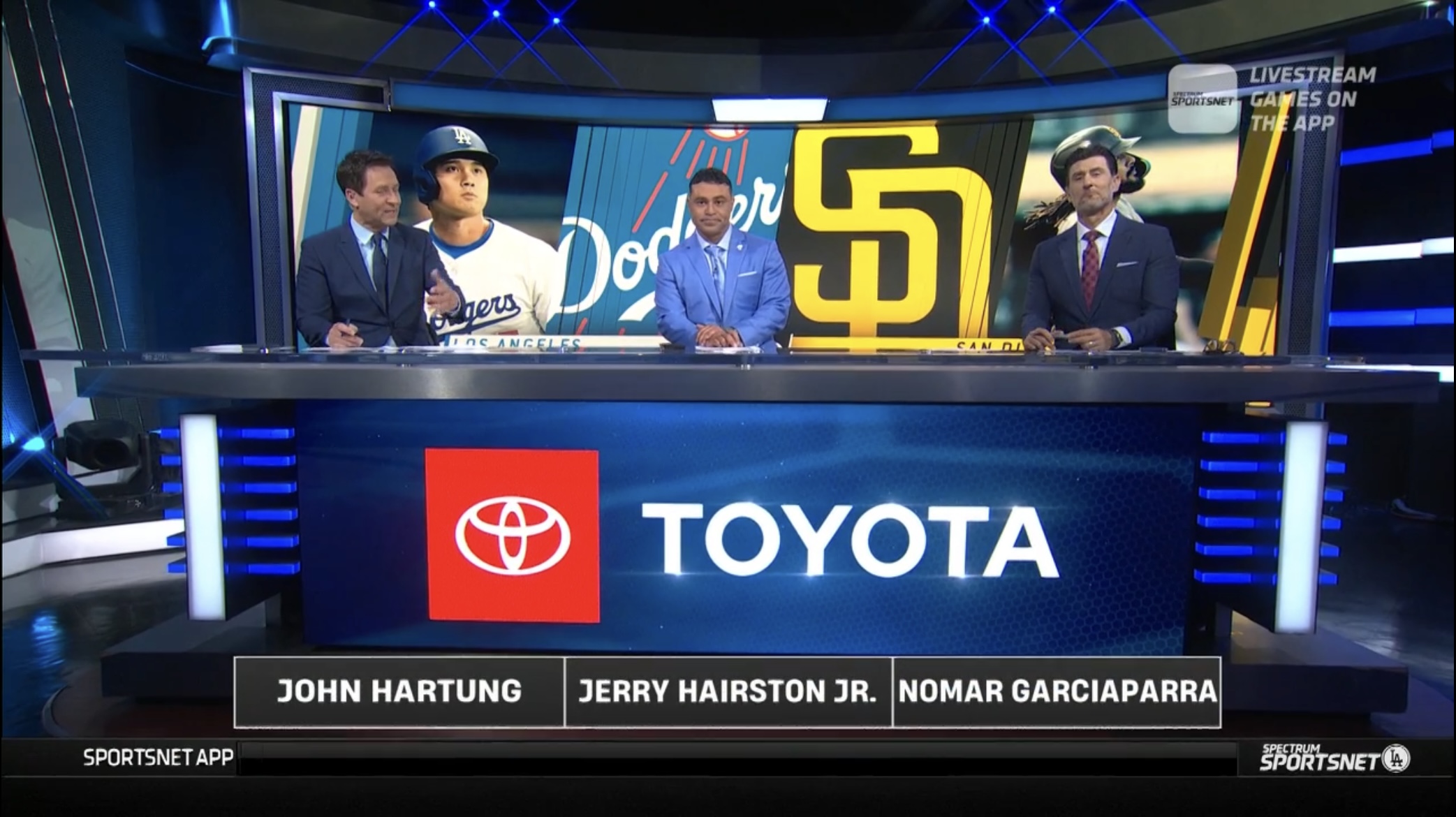
John Hartung, Jerry Hairston Jr., and Nomar Garciaparra led Spectrum SportsNet LA’s coverage from Los Angeles before the game.
Kim is doing more than just reporting on the action on the field. As a familiar contributor to ESPN’s KBO League coverage, he — and other contacts that the network has in South Korea — were essential to assembling the bilingual ENG and edit crews used for both games.
Early-Morning Baseball: Roadmap for 2023 World Baseball Classic Solves Similar Challenges
Major League Baseball has become accustomed to intercontinental competitions. Regular-season games have been played in London, and, in late April, the league will also head to Mexico City’s Estadio Alfredo Harp Helú for a two-game series between the Colorado Rockies and Houston Astros. Last year marked an unusual moment for MLB Global Events, which handled the three-week-long World Baseball Classic in March spanning multiple continents and venues. MLB worked with each site’s local production crew, produced a world-feed model for media-rights holders, and entertained the throngs of fans attending every game. The games required early call times and working with staffers in different time zones. ESPN is up to the challenge.
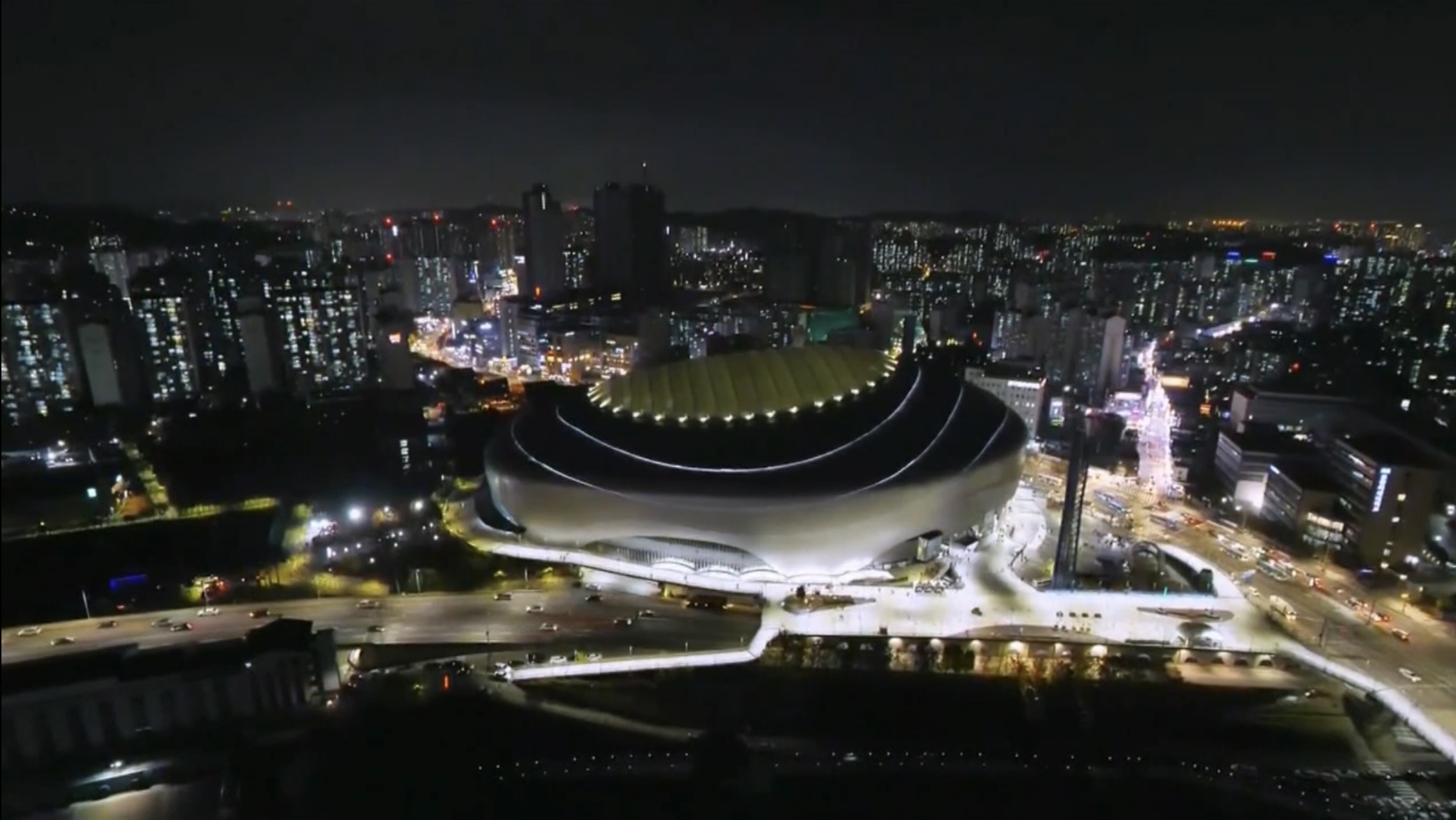
An exterior shot of the Gocheok Sky Dome before Dodgers vs. Padres on Wednesday.
“It’s different from the approach that we have for our exclusive games during the regular season,” Orlins notes, “but [the time difference] won’t have much of an impact since we wrapped up our Spring Training coverage. The only major difference is having to report at 1:30 a.m. ET for first pitch.”
With a first pitch at 6:07 a.m., different parts of the country will be tuning in during different parts of the early morning or late evening. Dodgers and Padres fans will be watching during the witching hour while diehard fans on the East Coast are having breakfast.
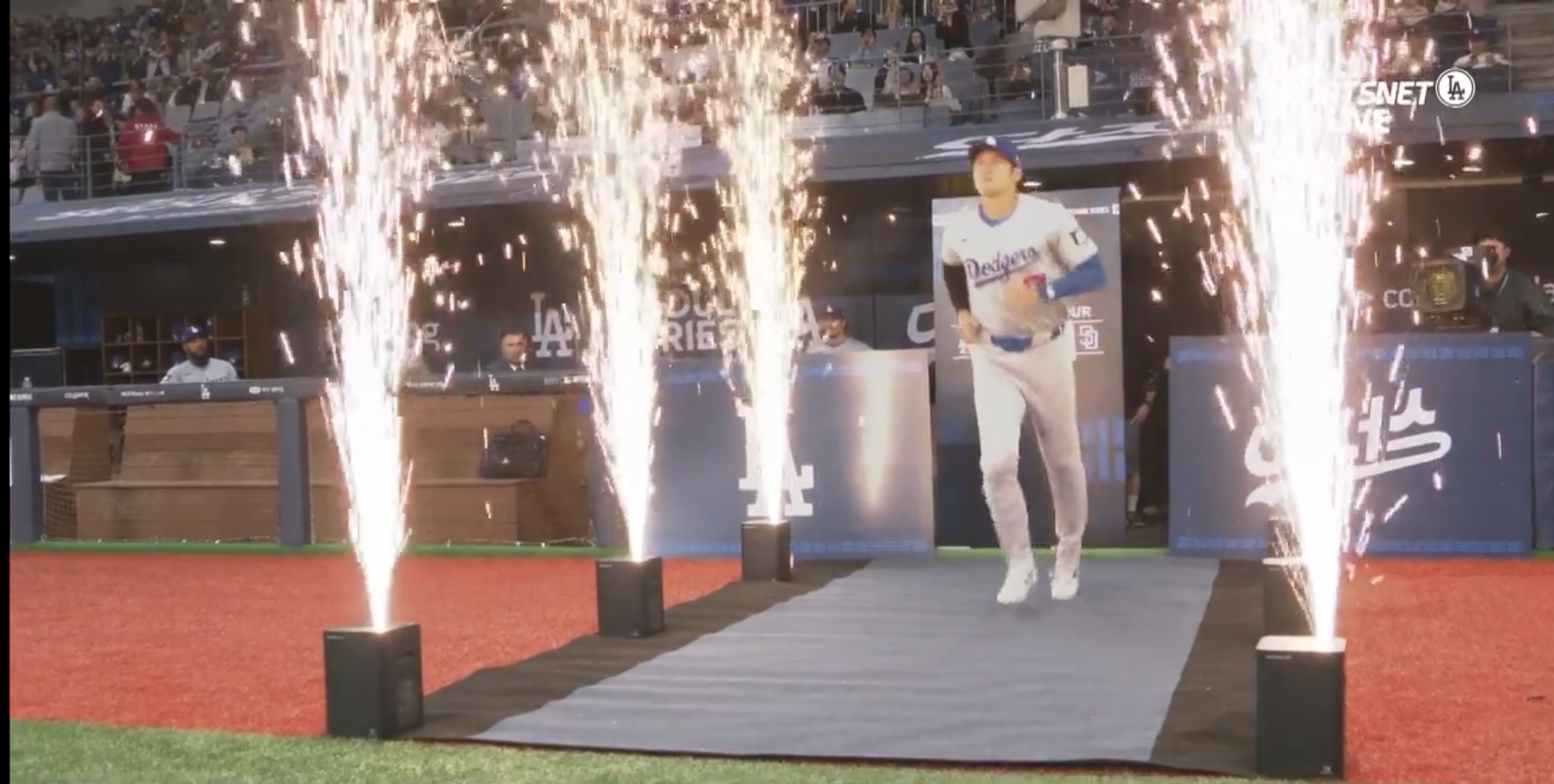
Shohei Ohtani is introduced during pregame warmups on Wednesday morning.
Adds Orlins, “We may find some interesting content from people watching the game during the morning errands or on their way to work.”
Coverage for Game 2 of the MLB Seoul Series will begin with a 30-minute pregame show at 5:30 a.m. ET on Thursday, March 21 on ESPN.
